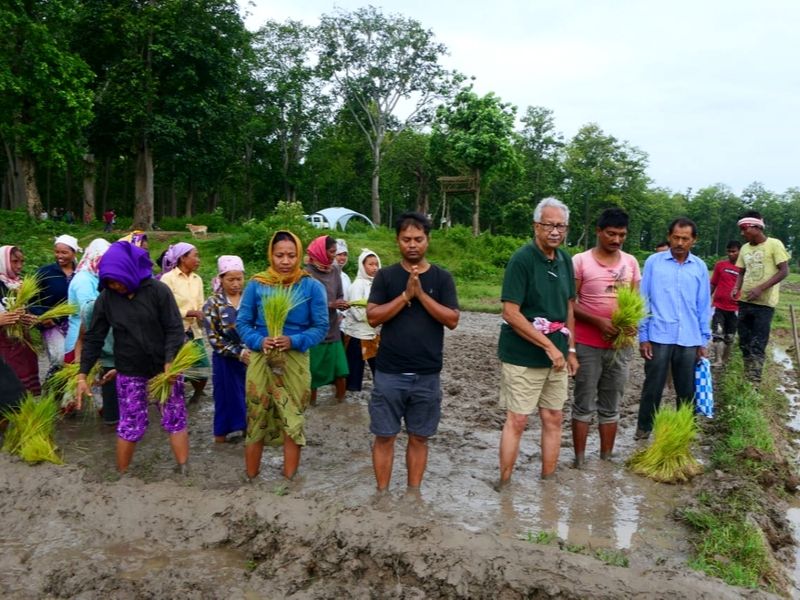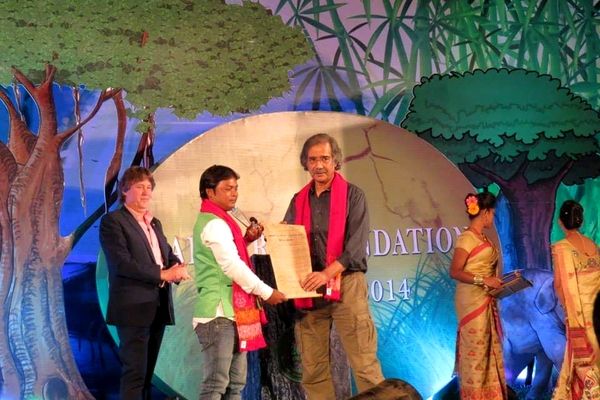
A group of 12 villages in the central Assam’s Nagaon district has created a ‘Jumbo Khet’ or Elephant farm. The jumbo khet is basically a meal zone where crops like paddy, banana, and even Napier grass are grown for the Elephants to feed on. It is a rather innovative method of restricting movement of Elephants to the designated area and avoid them from warding off to fields of these villagers, which otherwise is a common occurrence.
Ronghang-Hatikhuli area in Nagaon district is one such area where man-elephant conflicts have been a common occurrence. There are about 400 elephants around the region and in just two years, three people and five elephants have lost their lives in the conflict.
The Jumbo Khet is spread over 204 Bighas (approximately 32.75 hectares) of land donated collectively by farmers of 12 villages in the area. The man behind making this initiative a reality is Dulu Bora and his NGO Hatibandhu.

“This unique idea of having a paddy field at the foothills for elephants was of Pradip Kumar Bhuyan, the director of our NGO. 10 km away from the paddy field, we also have an eight-hectare plantation of Napier grass. And between these two fields, we have grown fruit-bearing trees and plants like jackfruit, banana, among others. The idea is that by the time elephants cross these fields, they will be well-fed and hence will not move to the villages and their crop fields,” says Bora.
However, there were many challenges in undertaking this initiative, says Bora. Most of the villagers in this region are poor and have really small landholdings, convincing them to donate a part of it towards the cause was difficult, recalls Bora. “The initial meetings I had with the villagers and the village headmen bore no fruits. It took as many as 14 meetings, going house-to-house convincing the villagers, to convince them to donate a small part of their land,” he says.
Apart from the fields, Bora and NGO Hatibondhu has built seven treehouses around the Jumbo Khet to guard and maintain them. For this purpose, about 35 reformed hunters have been employed.
Bora, an avid wildlife enthusiast says that its conservation comes naturally to him. “When I was a school-going boy, we had weekly Sunday markets in my village. Many traders would sell live wild animals and birds. I used to spend my pocket money on buying those birds and animals as many as I could and setting them free.”
Bora has been working as a wildlife conservationist for 25 years now. His work and dedication have won him several awards and recognition including the wildlife service award from Sanctuary Asia in 2014.
Also read: Assam: Gateway to the Orient



























